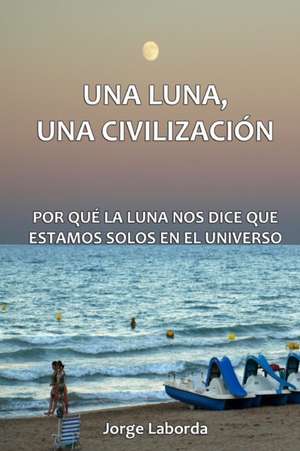Una Luna, Una Civilizacion. Por Que La Luna Nos Dice Que Estamos Solos En El Universo
Autor Jorge Labordaes Limba Spaniolă Paperback – 28 feb 2011
Preț: 124.27 lei
Nou
Puncte Express: 186
Preț estimativ în valută:
23.78€ • 24.64$ • 19.85£
23.78€ • 24.64$ • 19.85£
Carte tipărită la comandă
Livrare economică 21 martie-04 aprilie
Preluare comenzi: 021 569.72.76
Specificații
ISBN-13: 9781446702772
ISBN-10: 1446702774
Pagini: 220
Dimensiuni: 152 x 229 x 13 mm
Greutate: 0.33 kg
Editura: Lulu
ISBN-10: 1446702774
Pagini: 220
Dimensiuni: 152 x 229 x 13 mm
Greutate: 0.33 kg
Editura: Lulu
Notă biografică
Jorge Laborda, Ph.D., is Professor of Biochemistry and Molecular Biology in the Faculty of Pharmacy at the University of Castilla-La Mancha, Spain. Among his scientific contributions, it is worth mentioning the discoveries that reveal the existence of two genes regulating the activity of Notch receptors, one of the most important for the control of cell growth and differentiation and for the functioning of the immune system.
During his work at the FDA, from 1991 to 1999, he was responsible for the evaluation of numerous projects on new anticancer therapies based on monoclonal antibodies. From November 2003 to May 2004, he was appointed as a Leading National Expert at the European Commission, where he worked on the management and promotion of the area of Synthetic Biology. In April 2004, he was elected Dean of the UCLM School of Medicine. From June 2007 to June 2011, he held the position of Councilor for Science, Technology and Consumer Affairs at Albacete City Council. Among his contributions in that capacity is the creation of the Promenade of the Planets, a scale reproduction of the Solar System: https://es.wikipedia.org/wiki/Paseo_de_los_Planetas.
Among the extensive contributions in the area of scientific popularization he was PI of eight popularization projects financed by the FECYT (Spanish Foundation for Science and Technology) for the popularization of the scientific activities of the UCLM through the program Talking to Scientists (http://cienciaes.com/entrevistas/). He has authored twenty-two books on scientific subjects. Thirteen of these correspond to compilations of the more than one thousand popular science articles published in the newspaper La Tribuna de Albacete, newspapers of the Promecal group, and El País, and available in the blog Quilo de Ciencia (https://jorlab.blogspot.com). He has participated numerous times as a popularizer in Vanguardia de la Ciencia and Hablando con Científicos radio broadcast and podcasts programs. It also produces the podcast Quilo de Ciencia. He has also been the initiator and director of the podcast Ciencia Fresca. Finally, he was one of the initial promoters of the Spanish Science in the Parliament initiative, in which he participated as one of the six national experts to develop it.
